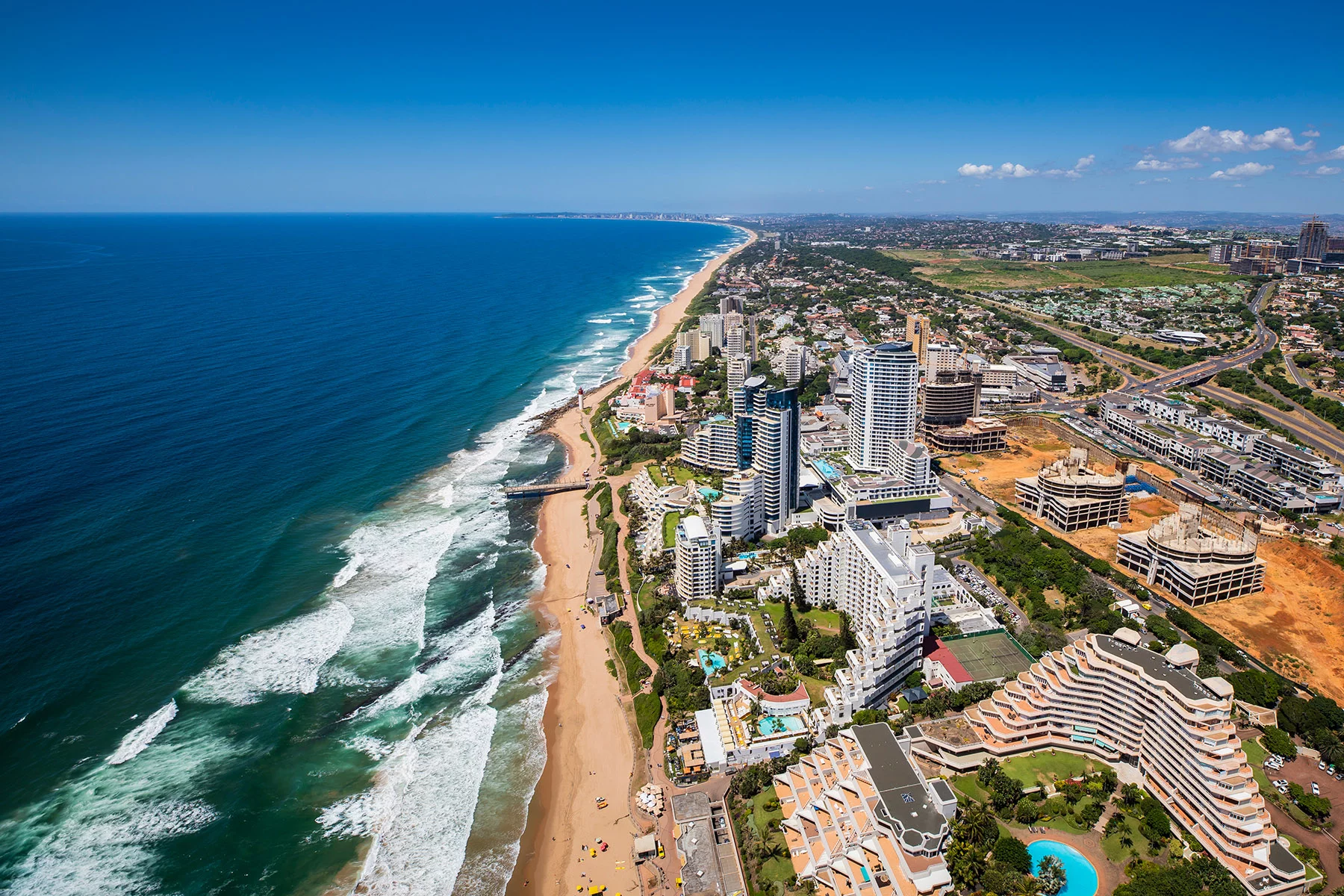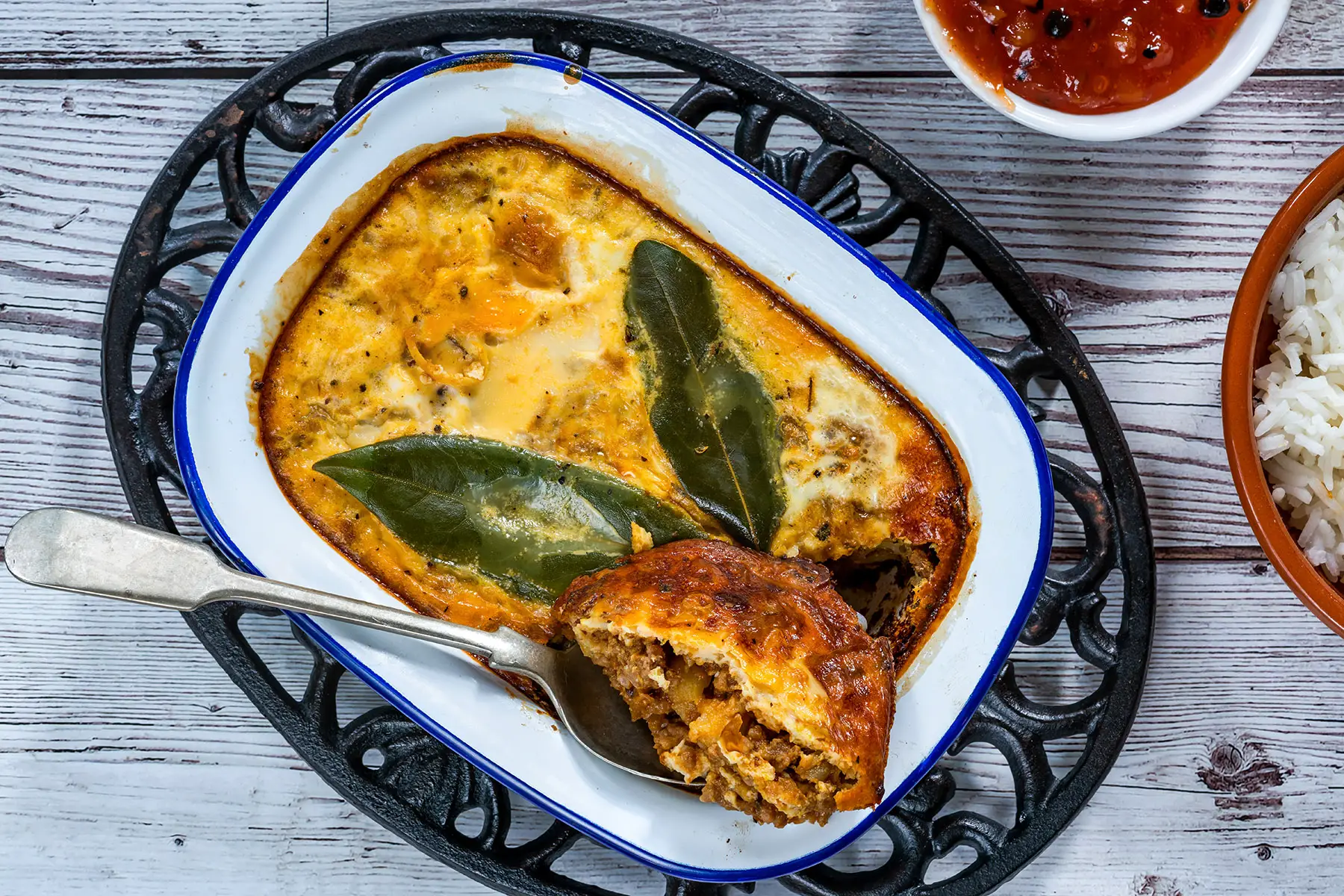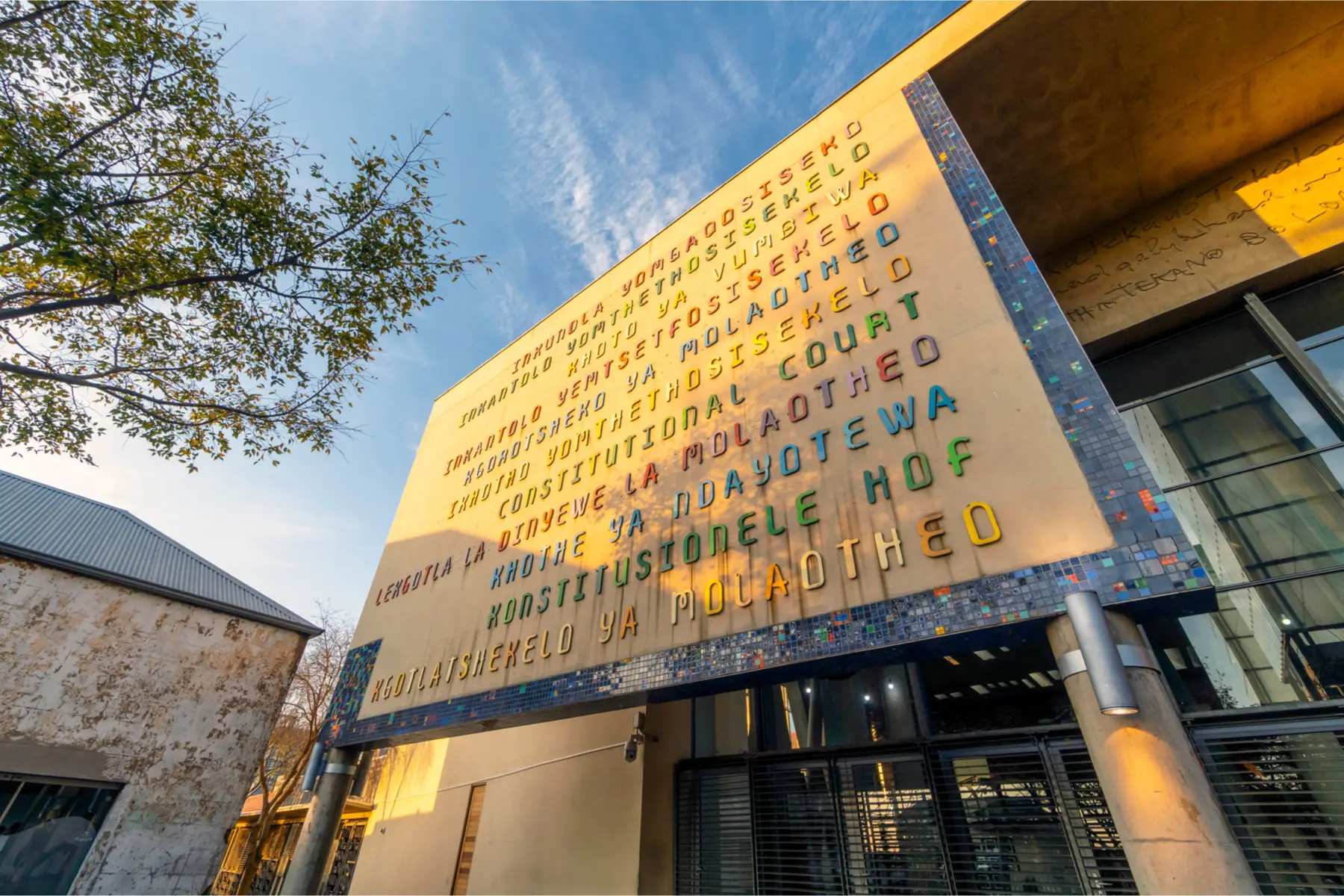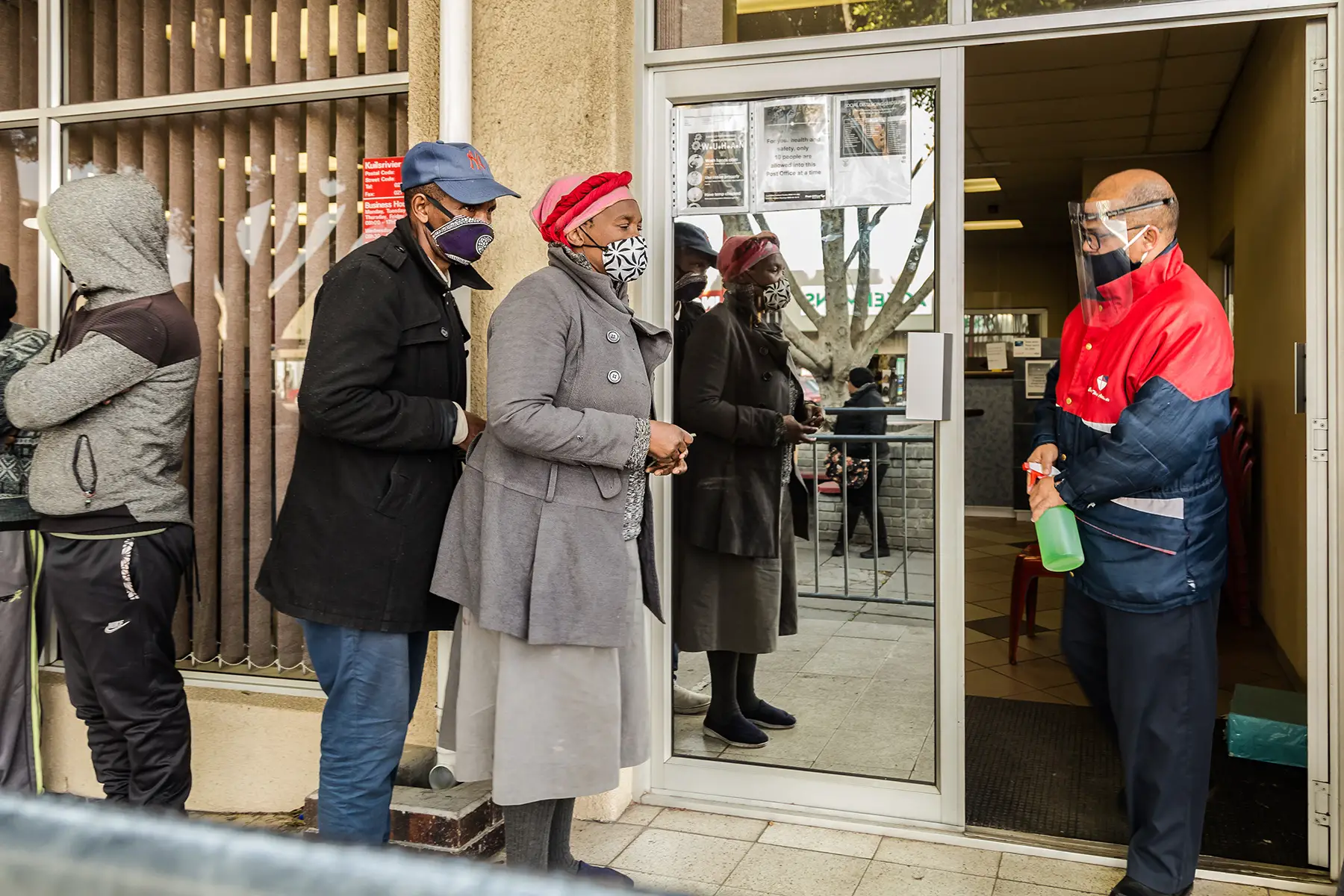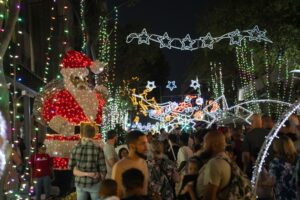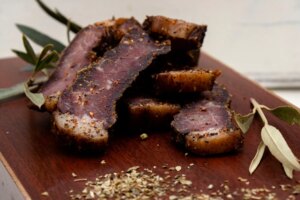South Africa (Zulu: Iningizimu Afrika, Xhosa: Mzantsi Afrika, Afrikaans: suid-Afrika) is a country of contrasts. The sub-tropical country boasts astonishing natural landscapes, vibrant communities with warm and friendly people, a laid-back lifestyle, and exciting places to explore.
On the other hand, the country also struggles with political corruption, high unemployment and crime rates, environmental pollution, and the occasional internal strive.
If you’re looking to relocate to South Africa – or you’re just interested in learning more about the country – we provide an introductory look at various aspects of life, including the following:
- A quick introduction to South Africa
- South Africa’s historical background
- What is South Africa’s geography like?
- Which are the main cities in South Africa?
- South Africa’s economy and living standards
- How is the quality of life in South Africa?
- South African people and society
- Lifestyle and culture in South Africa
- What is typical South African cuisine like?
- South African government and politics
- Status of human rights and freedom
- Is crime a problem in South Africa?
- Healthcare, welfare, and social security
- The education system in South Africa
- South Africa’s work and business culture
- What are the important public holidays?
- Stereotypical myths about South Africa
- Useful resources
Sirelo
It’s no secret that moving abroad can be stressful. Sirelo’s team of removal advisors is here to help. They provide five free quotes from international shipping companies so you can find the best options at the best prices. Take the stress out of your move to South Africa with Sirelo.
A quick introduction to South Africa
South Africa is home to 63.2 million people, including 2 million expats (2024). The country – nicknamed Mzansi (derived from the Xhosa noun uMzantzi meaning “South”) – draws many travelers and opportunists alike with its diverse cultural tapestry, high (yet affordable) standard of living, and natural beauty.
There are nine provinces, three capital cities, and 12 official languages, including isiZulu, isiXhosa, and Afrikaans.

South Africa has a relatively young population. According to the 2024 estimates, about 27.5% of people are under 15 years old, while approximately 9.7% are aged 60 years or older. The majority of young people live in KwaZulu-Natal (21,4%) and Gauteng (21,3%), whereas the majority of seniors (24.8%) live in Gauteng.
Interesting facts and figures
- Official name: The Republic of South Africa
- Head of state: President Cyril Ramaphosa, since 2018
- Population (as of mid-2024): 63.2 million
- Provinces: 9
- Climate: Sub-tropical and temperate
- Official languages (from most to least spoken): isiZulu, isiXhosa, Afrikaans, Sepedi, English, Setswana, Sesotho, Xitsonga, siSwati, Tshivenda, isiNdebele, South African Sign Language (SASL)
- Religions (as of 2022): Christianity (85.3%), Traditional African Indigenous beliefs (7.8%), Islam (1.6%), and Hinduism (1.1%)
- Currency: South African Rand (R)
- GDP (in 2024): R7.302 trillion (US$403.1 billion)
South Africa’s historical background
South Africa has an incredibly long history that stretches back to (maybe) the beginning of humankind. Indeed, fossilized bones found near Johannesburg suggest that most human ancestors originated from the African continent (i.e., the Out of Africa theory).
The traditional Indigenous communities are the San and Khoikhoi peoples, who traditionally speak non-Bantu languages with click sounds. They are collectively known as Khoe-San (also spelled Khoesan, Khoi-San, and Khoisan).

Of course, European colonization and exploitation mark a Vantablack period in South African history. After throwing off the shackles of Apartheid in 1994, the country entered a period of relative stability and prosperity.
What are key historical dates in South Africa?
- ca 2–3 million BCE – Mrs Ples and Little Foot live and die near Sterkfontein
- 1652 – the Dutch East India Company (Verenigde Oostindische Compagnie – VOC) establishes the Dutch Cape Colony and imports farmers and enslaved people to settle the land
- 1795–1805 – the British seize the Cape Colony in 1795, only to relinquish it back to Dutch rule in 1803. Two years later, in 1805, the British change their mind and retake the Cape.
- 1815–50s – European powers formally recognize British rule in the Cape. Many Dutch colonialists leave the area and are replaced by British settlers. Meanwhile, Britain abolishes slavery (1834). Around 1850, the descendants of the Dutch farmers (Boers) establish The Transvaal and The Orange Free State, two independent nation-states.
- 1879 – the Anglo-Zulu War ends in a British victory and annexation of the Zulu Kingdom
- 1880–81 – the First Anglo-Boer War ends in a Boer victory
- 1899–1902 – the Second Anglo-Boer War ends in a British victory. The Dutch Boer colonies are annexed into the British Empire.
- 1910s – the various colonies are unified in the Union of South Africa, an independent Dominion of the British Empire. Several harsh segregationist laws are passed to restrict Black voting and land ownership.
- 1931–4 – British legal authority ends in South Africa. The country is declared “a sovereign independent state.”
- 1948–50 – the Union of South Africa establishes Apartheid. The ANC, led by Nelson Mandela, starts civil disobedience.
- 1961–4 – South Africa becomes a republic and exits the British Commonwealth. The ANC initiates sabotage, and Mandela receives a life sentence.
- 1990–4 – Mandela is released after 27 years and Namibia gains independence. The first democratic elections (1994) result in a historic win for the ANC. Mandela is elected president and forms the Government of National Unity.
- 2012 – labor unrest in the mining industry leads to the Marikana massacre
- 2013 – Mandela passes at the age of 95. Global tributes pour in for the “father of the nation.”
- 2021 – the imprisonment of former President Jacob Zuma leads to civil unrest
You can find a more in-depth overview of South Africa’s history online, including on the government website.
What is South Africa’s geography like?
South Africa is located at the southernmost tip of the African continent. It shares borders with Namibia and Botswana to the west, Zimbabwe in the north, and Eswatini and Mozambique in the northeast. It also entirely surrounds the Kingdom of Lesotho. To the east, south, and west, South Africa features an extensive coastline along the Indian and Atlantic oceans.

South Africa boasts breathtaking natural wonders and biodiversity that includes rolling savannahs, dramatic mountain ranges, arid deserts, and pristine coastlines with some spectacular marine ecosystems, such as the Sardine Run along the Wild Coast and the vibrant coral reefs of Sodwana Bay.
Some of its most striking geographic features include:
- South Africa has a land area of 1.22 million square kilometers, making it the 25th-largest country in the world. It is two times as big as France and five times as big as the UK.
- There are eight world heritage sites and 290 conservation parks with eight distinct vegetation biomes.
- The Drakensberg Mountains are the highest mountain range in Southern Africa, with Thabana Ntlenyana (3,482 m) as its tallest peak, located in Lesotho.
- Located within its borders is the Kalahari Desert, a vast semi-arid sandy savannah spanning South Africa, Namibia, and Botswana.
- South Africa is also home to two of the world’s most renowned biodiversity hotspots: the Cape Floristic Region and the Succulent Karoo.
Climate and environmental sustainability in South Africa
Because of the vast land size, South Africa is a climate patchwork of weather conditions. The country has balmy coastal subtropics, blistering deserts, damp highlands, snow-topped mountains, and a pocket of Mediterranean weather in the southwest.
Expats expecting constant heat may be surprised by South Africa’s winter months (May to September) when temperatures can drop below freezing. Average temperatures in South Africa range from 15°C to 36°C in the summer and −2°C to 26°C in the winter. For a more temperate winter climate, you should go to the coastal regions, especially on the side of the Indian Ocean.
Rain mostly falls from mid-September to April, except in the southwest (Cape Town area), which sees precipitation from April to early September.

Water is a scarce resource, and some projections suggest that – even without climate change – the country is likely to run out in the near future. Rising temperatures, water sparsity, and increasing population demands are South Africa’s most significant challenges in terms of economic and human impacts.
Another major concern is air pollution, particularly in the urban sprawl of Benoni (east of Johannesburg) and Bloemfontein. In 2023, South Africa’s air quality averaged four times higher than the WHO annual air quality guideline.
Which are the main cities in South Africa?
Roughly 68.8% of the population lives in urban centers (2023). Key locations are South Africa’s capital cities, Cape Town (legislative), Johannesburg (judiciary), and Pretoria (executive).
Cape Town
Cape Town – or the ‘Mother City,’ as its residents affectionately call it – draws many expats and locals alike. And for good reason: this picture-perfect metropolis was named the greatest city on earth in the 2023 Telegraph Travel Awards.
The city is the second largest in South Africa and provides a high standard of living. Notable features include the picturesque Table Mountain, Cape Point, and a bustling harbor.
Johannesburg
Johannesburg stretches wide under abundant sunshine. Colloquially known as Jozi, Joburg, or “The City of Gold,” this is South Africa’s largest megalopolis in terms of population, economy, and sheer size.
Joburg is a key player in Africa’s financial landscape, thanks to its strong financial services sector and its role as the country’s mining capital. Salaries are also higher than the national average, with employees earning roughly 5.7% more than usual (2018). It’s understandable then that this is where locals and expats go to pursue their business dreams.
Pretoria
Pretoria is South Africa’s administrative capital, home to the executive branch of the government and all foreign embassies. The city also boasts some of the country’s top-rated schools and is well-known for its universities and national research centers.
Sometimes called the ‘Jacaranda City’ because of its 70,000-odd jacaranda trees, Pretoria is much quieter than Joburg. As such, many residents choose to live there and commute to Johannesburg, a 50-minute drive away.
South Africa’s economy and living standards
With a GDP of R7.302 trillion (or US$403.1 billion), South Africa controls the largest economy in Africa and the 41st-largest in the world. Financial forecasts for 2024 predict a weakly positive growth of 1.1%, which is below the regional growth of 3%.

The main economic driver is the services sector (e.g., financial services, real estate, and transport), which generates 62.6% of the gross domestic product (2022). Other significant contributors are the industry (36%), agriculture (13%), and manufacturing (12%).
Unfortunately, however, this doesn’t mean South Africa has an abundance of jobs. According to Statistics South Africa, the country’s unemployment rate is 33.5% (August 2024). Similarly depressing is the average monthly income, which is R31,300 (US$1,732) before taxes and other deductions (2023). Indeed, around 75% of employees earn R41,100 (US$2,275) or less.
Poverty is very high in South Africa – with over 60% of the population living below the poverty line (2023). While some internationals may generally find the cost of living to be affordable, this does mean that Apartheid’s legacy of inequality still persists.
Over the past few years, the government has approved several measures to reduce extreme poverty and boost the economy, with mixed results.
How is the quality of life in South Africa?
South Africa is a so-called aspirant middle-class society. This means most residents hover above the poverty threshold financially – but not enough to fit securely in the middle class.

It’s perhaps understandable then that the quality of life in South Africa isn’t much to speak about. For example:
- The average life expectancy is 65.1, more than eight years below the global average of 73.3 (2024)
- South Africans grade their general life satisfaction as 4.9, much lower than the OECD average of 6.7
- The country ranks 115th out of 166 on the 2024 Sustainable Development Report, scoring red across the board
- Crime levels – particularly violent crime – are some of the highest in the world, with Nelson Mandela Bay being the most violent city in 2022
Still, a good 63% of expats feel at home in South Africa (compared to the global average of 58%), because of the vibrant communities, relaxed atmosphere, and warm and friendly attitudes.
South African people and society
South Africa is the 24th most populous nation in the world, with a population of 63.2 million (as of mid-2024). Mzansi includes many ethnic groups, each justly proud of its heritage, language, traditions, and religious beliefs.
To throw out a sweeping generalization, South Africans tend to be laid-back, welcoming, and exceptionally friendly. While politeness is an important aspect of the culture, most people have a direct style of communication. South African people generally speak confidently and straight to the point, which some foreigners may find overly assertive or blunt.
Most South Africans are also comfortable with physical affection and contact. Expats who love their personal space should take note: a lack of physical contact can be interpreted as aloofness, unfriendliness, or a lack of trust.
Lifestyle and culture in South Africa
From rock and cave art to Nobel prize-winning literature, South Africa’s cultural heritage spans millennia. The country’s artistic expression is deeply rooted in its diverse languages, traditions, and landscapes and reflects a history marked by colonialism, struggle, and triumph.

Art and literature
South African art and literature portray the country’s rich diversity and history.
Traditional beadwork, pottery, and weaving from Indigenous groups like the Zulu, Xhosa, and Ndebele continue to thrive, blending intricate patterns with cultural storytelling. Likewise, the country’s contemporary art scene is internationally acclaimed, with artists such as William Kentridge, Zanele Muholi, and David Goldblatt showcasing their work across the globe.
Literature played a key role during Apartheid, serving as both an escape and a form of resistance. Nobel laureates Nadine Gordimer and J.M. Coetzee have earned global recognition for shedding light on its struggles. Contemporary authors like Zakes Mda (pen name of Zanemvula Kizito Gatyeni Mda) and Sindiwe Magona explore themes of identity, migration, and transformation, confronting the legacy of Apartheid head-on.
Performing arts and entertainment
From traditional dances to world-renowned singers and performers, South Africa offers incredible music and entertainment options that resonate with local and global audiences.
In music, traditional styles like isicathamiya (popularized by Ladysmith Black Mambazo) and maskandi celebrate cultural roots and reflect the rhythms of rural life. During the last century, jazz legends like Hugh Masekela and Miriam Makeba brought South African sounds to the world stage. However, today’s airwaves are dominated by modern township beats like kwaito and amapiano.

If you’re into live performances, you should buy tickets for the National Arts Festival and Cape Town International Jazz Festival, just to name a few. These pinnacle events provide stages for both traditional and contemporary artists and create unique cultural experiences that you don’t want to miss.
Meanwhile, over in cinema, South Africa has also gained global acclaim. Notable examples include:
- Tsotsi – won the 2006 Academy Award for Best Foreign Language Film
- District 9 – earned four Oscar nominations in 2010
- Life, Above All (Original title: Le secret de Chanda) – shortlisted for the 2011 Academy Award for Best Foreign Language Film and received a 10-minute standing ovation at its world premiere
- The Wound (Original title: Inxeba) – shortlisted for the 2017 Academy Award for Best Foreign Language Film
Sports
When it comes to sports, cricket, rugby, and soccer (football) dominate the national scene. In fact, South Africa has hosted the World Cups for men’s rugby (1995), cricket (2003), and soccer (2010) – the only country in the world other than the UK to have done so.
These sports are also favorites to play recreationally. Another popular pastime is golf because of the many great courses across the country. Water sports such as swimming and surfing thrive along South Africa’s extensive coastline, while hiking and trail running are common in mountainous areas and nature reserves.
Other popular sports include cycling, mountain biking, netball, squash, and tennis.

Religion
South Africa has never had an official state religion, and its constitution guarantees religious freedom for all citizens. That said, religion plays a significant role in society, and weekly attendance at some form of ecclesiastical gathering is very common.
Around 85.3% of the population practices Christianity (2022). Other religions include Traditional African Indigenous faiths (7.8%), Islam (1.6%), and Hinduism (1.1%). It is also common for some ethnic groups to blend traditional religious practices with Christian elements.
In African Indigenous communities, ancestral spirits and Supreme Beings play a central role. These are believed to govern various aspects of life, including health, fertility, and social order. Traditional rituals and offerings remain essential for maintaining harmony and addressing misfortunes.
What is typical South African cuisine like?
Anyone familiar with the country’s food scene knows the greatest hits like biltong, bobotie, braai, and bunny chow. But like its geography, South African cuisine is a vast and varied buffet.
A big part of the food culture is barbeque (i.e., braai), with locals grilling meats like lamb chops, beef steaks, and boerewors over open flames. Indigenous staples such as pap (maize porridge) and chakalaka (spicy vegetable relish) are often served as side dishes.
Another thing that should not be overlooked is South African street food. There are plenty of iconic delicacies, including amagwinya or vetkoek (fried dough often stuffed with savory mince), boerie rolls (a roll with sausage, tomato sauce, and fried onions), and walkie talkie (boiled or grilled chicken head and feet).

The Cape region is famous for its Cape Malay food, featuring fragrant dishes like bredie (lamb and vegetable stew), breyani (spicy lentil stew), and sosaties (lamb or mutton kebabs). Meanwhile, Durban is home to a large Indian community – locals say you can’t leave before you try one of their fiery curries, such as mutton curry studded with “gravy soakers” or fish curry spiked with black tamarind and curry leaves.
South African government and politics
South Africa is a constitutional democracy and parliamentary republic. It is currently led by President Cyril Ramaphosa as both the head of state and head of government. The country also has nine regional legislatures for each of the nine provinces.
Elections are held every five years, in which citizens over 18 have the right to vote. Voting is not mandatory. The last general elections were held in 2024, which resulted in a major loss for the ruling party, ANC.
South Africa is nonaligned and has no official political allies. That said, the country has strong diplomatic ties with China, the European Union (EU), and the United States (US). South Africa is also a member of the African Union, BRICS, and the Southern African Development Community (SADC).
Status of human rights and freedom
South Africa ranks moderately well on the 2023 Human Freedom Index, reaching 73rd out of 165 nations (tied with Brazil). In Sub-Saharan Africa, the country came in seventh place out of 45. Mzansi scores excellent grades on freedom of association, assembly, civil society, relationships, and religion. Notably, it’s the first nation in Africa to legalize same-sex marriage.
Freedom House designates the country as a ‘free democracy,’ scoring 79/100 overall (33/40 on political rights and 46/60 on civil liberties).

Freedom of the press is guaranteed, and South Africa has a well-established culture of investigative journalism. While reporters are often subjected to verbal attacks from political leaders and activists, the RSF 2024 World Press Freedoms Index ranks the country 38th out of 180.
Of course, not everything can be positive all the time.
South Africa underperforms in safety and security, the legal system, and the rule of law (Human Freedom Index, 2023). Moreover, African Indigenous San and Khoikhoi peoples are not formally recognized in terms of national legislation.
According to a 2024 report by Human Rights Watch, Mzansi faces significant human rights issues, such as:
- State corruption and police misconduct
- Environmental challenges such as air pollution
- Entrenched sexual violence and discrimination against women and Lesbian, Gay, Bisexual, Transgender, and Queer (LGBTQ+) people
- Xenophobia and anti-immigrant violence against African and Asian foreign nationals
Concerns over state surveillance led to a 2021 Constitutional Court ruling against bulk (internet) surveillance.
South Africa celebrates Human Rights Day on 21 March, commemorating the tragic 1960 Sharpeville Massacre, a turning point in the Apartheid era.
Is crime a problem in South Africa?
Unfortunately, yes: it’s a well-known fact that South Africa grapples with an unacceptably high crime rate.
The country’s 2023 per-capita murder rate is 45 per 100,000, the highest on record in 20 years. According to government statistics, household crimes (including housebreaking, home robbery, and motor vehicle theft) and individual crimes are also crimes to watch out for. Notable exceptions are consumer fraud and motor vehicle hijacking, which saw a decline in 2022/2023.

The African Organized Crime Index also paints a very troublesome picture. It alleges South Africa deals with crimes like human trafficking, human sacrifice, organ smuggling, (s)extortion, and protection racketeering. Apparently, illegal trades in wildlife, firearms, and non-renewable resources also run rampant.
Since the 1990s, South African police have prioritized militarised policing approaches. They’re also quite forceful in their interactions with alleged criminals. However, this has done nothing for South Africa’s (violent) crime rates. In fact, it has arguably made it worse, eroding public trust. In 2022, only 27% of the population viewed the police as trustworthy.
Healthcare, welfare, and social security
South Africa boasts the highest healthcare standards on the continent, offering universal medical care regardless of nationality or immigration status. Public healthcare charges on the basis of income and number of children and pays up to 40% of the total costs.
However, the healthcare system pales in comparison with those in Europe and northern America. For example, some medications are not available, and waiting lists can be long, especially when it comes to seeing a specialist. As such, around 20% of the population relies on private health insurance.
South Africa’s social security system is less robust. The government offers various grants for children, older persons, and persons living with disabilities. Unemployment support – while limited – is also available for those who have contributed to it.
Despite its crucial role, resources are strained. The social security system faces challenges like administrative inefficiencies, a growing demand, and high unemployment rates.
The education system in South Africa
Basic education is mandatory from Grade R to Grade 10–12 (ages 5–6 to 18), and parents can choose between public, private, and international schools. Homeschooling is also a legal option.
South Africa spends 6.18% of its national GDP (2022) on public education.

Disconcertingly, the country still grapples with vast inequality, which negatively impacts the overall quality of the public school system. This is especially true in areas where families cannot afford to pay school fees.
According to the Progress in International Reading Literacy Study (PIRLS, 2021), young children’s reading and comprehension skills are seeing some concerning trends. For example, a significant number of children exiting Grade 1 (age 6) lacked basic alphabet knowledge, while the majority of Grade 4 students (age 9) struggled to comprehend written texts.
That said, these results should be viewed with caution. The tests are conducted in English, which may skew the scores as many students speak another language at home. Indeed, the national youth literacy rate is 97% (2021), surpassing that of many of its neighbors on the African continent.
After graduation, students can take on vocational training or attend local universities. Four of South Africa’s universities rank in the 2025 World University Rankings top 500:
- University of Cape Town (180th place)
- Stellenbosch University (somewhere between 301-350)
- University of the Witwatersrand (somewhere between 301-350)
- University of Johannesburg (somewhere between 401–500)
South Africa’s work and business culture
According to Statistics South Africa, the country has a terrifying unemployment rate of 33.5% (August 2024). The highest rates were found in the provinces of Eastern Cape, North West, and Free State. Working-age South Africans number roughly 41.1 million people (2023), with around 29% being self-employed (2022).
Common jobs for foreigners include tour guides, travel agents, sales representatives, and English teachers.

South African business culture places importance on networking and meeting deadlines. In urban areas, the work culture is similar to that in Europe; however, it’s important to research what etiquette applies, especially when you’re doing business with people from more traditional Indigenous communities.
Typical working hours are from 09:00 to 17:00 – with one hour for lunch – on Mondays through Fridays. Full-time employees are entitled to a minimum of 21 consecutive days (15 working days) of fully paid vacation days.
In South Africa, the general business attire is a suit and tie for men and a suit or dress for women. Then again, like elsewhere in the world, this can be industry-dependent. For example, you wouldn’t want to show up in a suit if you are a diving instructor.
What are the important public holidays?
South Africa has 12 public holidays penned on the calendar throughout the year. The most important dates include:
| Holiday | Date | Commemmorates or celebrates |
| Human Rights Day | 21 March | The 1960 Sharpeville Massacre |
| Freedom Day | 27 April | The first post-apartheid elections (1994) and the new constitution |
| Youth Day | 16 June | The 1976 Student Protest in Soweto |
| National Women’s Day | 9 August | The 1956 Women’s March |
| Heritage Day | 24 September | South Africa’s cultural heritage |
| Day of Reconciliation | 16 December | National unity and reconciliation among South Africans |
| Christmas Day | 25 December | The birthday of Christianity’s son of god |
Stereotypical myths about South Africa
Myth: Wild animals roam the streets
When you ask if the wild animals are hiding, South Africans will, at best, roll their eyes. At worst… Well, just don’t ask the question.
Wild animals do not stalk the streets, elephants are not the main mode of transport, and rhinos are not kept as pets. The only time that a lion roamed the streets of Braamfontein in Johannesburg – recently, anyway – turned out to be an actor in an unnamed movie.

Myth: There are no white South Africans
Foreigners are always surprised – if not shocked – when they meet a white South African. Or an Indian or Asian South African. Sometimes, even light-skinned South Africans get a questioning look.
But no, not all South Africans are Black. There’s a reason why the country’s international nickname is The Rainbow Nation: the population includes all colors and cultures of the melanin spectrum.
Myth: It’s always hot in South Africa
While South Africa enjoys ample sunshine, it’s not all clear skies. The country experiences rainstorms, floods, thunder, hail, and snow – sometimes all in a day.
Sure, the winters are milder than in Europe and North America. But in a country as big as this one, different weather conditions are a given. Temperatures can drop below zero, even in South Africa.
Useful resources
- South African Government – official website of the government
- South Africa – website of the country’s tourism board



